People
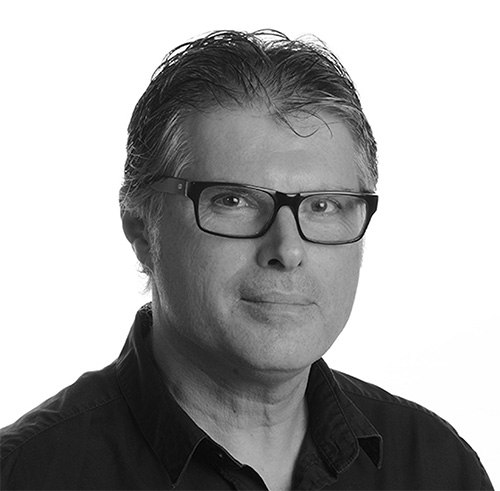
Yasha Jacob Grobman
Head of the research group
Yasha Jacob Grobman is a professor at the Faculty of Architecture and Town Planning at the Technion, the founding director of the Technion Computational Design research group (T_CODE), and an award-winning, practicing architect. He served as the dean of the Faculty of Architecture and Town Planning at the Technion from 2019-2022.
Grobman concentrates his research on architectural design computation, i.e., developing innovative digital tools and methods for design and fabrication. He also argues for a broader understanding of architectural performance that includes not only environmental and structural aspects, but also the perceptual and behavioral aspects of architectural space.
Alongside his research, Prof. Grobman is a practicing architect at Grobman Architects. Most of his projects are used to test his research ideas, design and fabrication methods, and promote state-of-the-art technology in architectural practice. Many projects emerge from award-winning design competitions, such as the Porter School of Environmental Studies building at Tel Aviv University, which won an international design competition for sustainability. The building is Israel's first LEED Platinum-certified building and the recipient of the Israeli government's "Diamond Level" Green Building Standard (5281).
Prof. Grobman published more than 100 scientific and professional papers and reports. He is the co-author of several books, among them is the 2011 book "Performalism — Between Form, Function, and Performance in Contemporary Architecture.
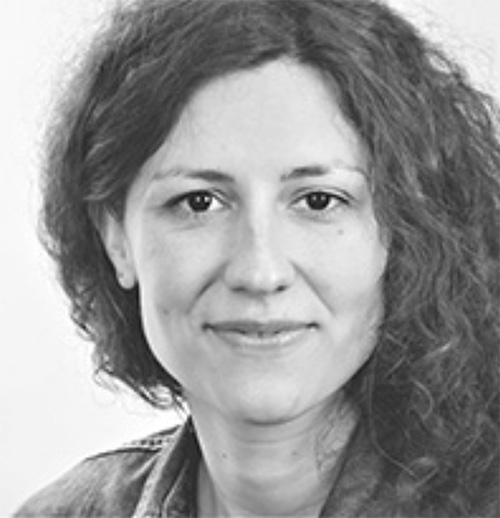
Stefanie Rückrich
Ph.D. candidate.
Stefanie studied Architecture and Urban Design in Germany and gained experience on several earthen construction sides. Her research deals with earthen fibrous material and natural additives. It investigates novel possibilities of construction methods through the aid of current technology, specially additive manufacturing.
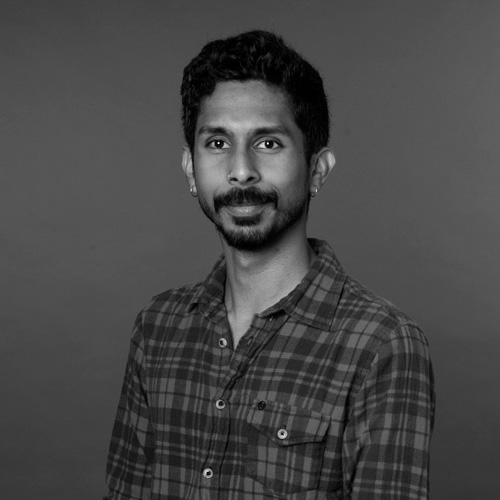
Surayyn Uthaya Selvan
Ph.D. Candidate
Surayyn Uthaya Selvan is researching multi-criteria decision-making computational methodologies to support multi-species design solutions. His research also contributes toward the EU-funded ECOLOPES research project that proposes a design recommendation system for multi-species building envelopes.
After graduating with a BSc (Hons) in Architecture in Malaysia, he practiced as an Assistant Architect and, subsequently, an interior design project manager. He furthered his studies with a Master’s in Advanced Architecture at the Institute for Advanced Architecture of Catalonia, where he developed extensive knowledge of computational design. He has explored different fields, such as speculative architecture, and wearable technology, and ultimately, produced a thesis on data-driven urban design methodologies using natural language processing.
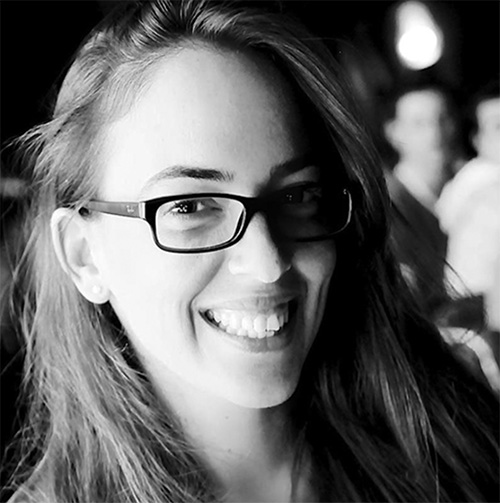
Maayan Fadida
MSc Candidate
Maayan is an architect interested in the interfaces between architecture and industrial design. Her multidisciplinary research combines computational design, cross-scale design, and fabrication. Maayan's dissertation "Viral transmission pathways in public transportation and ways design can facilitate it: case study COVID-19" is based on applied experimental research formulated during the worldwide COVID pandemic 2020. The research aims to understand the potential transmission dynamics of viral diseases in the built environment, specifically public transportation vehicles, and offer innovative design solutions to mitigate infection vectors. The research combines forensic science methods, virology, object and space design, multi-agent modeling, and simulation.
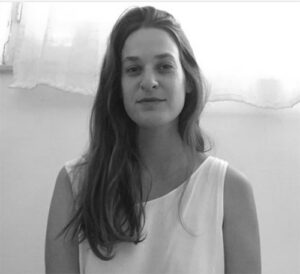
Gaya Salman
MSc Candidate
Gaya Salman holds B.Des in jewelry design. She was always interested in combining engineering, design, and materials. This interest led her to UDK Berlin to study industrial and sustainable design. In hemaster's research, she develops "3D printed interlocking building elements", which consists of self-connected structures without external joints or the use of mortar. The MSc research employs parametric design and computer-aided manufacturing combined with ecological materials in developing an interlocking masonry system
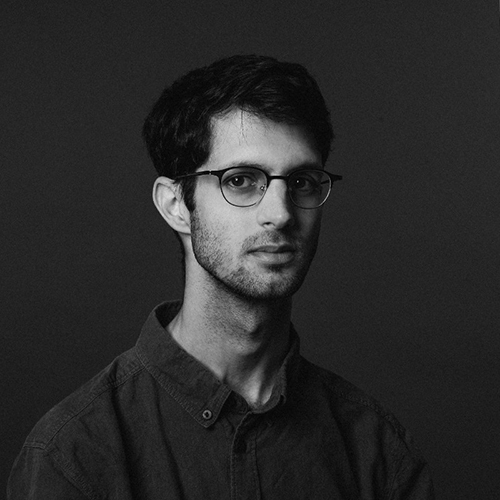
Avraham Cohen
Ph.D. candidate in collaboration with the D.Dlab, Technion
Avi Cohen is an architect and Ph.D. candidate. His research focuses on developing Large scale additive manufacturing workflow of bio-based materials toward enhanced acoustic performance. Avi is also a tutor of parametric design in the faculty of Architecture and Town planning, Technion. He currently leads two applied research projects from the Ministry of Housing and Construction and the Israel Innovation Authority.
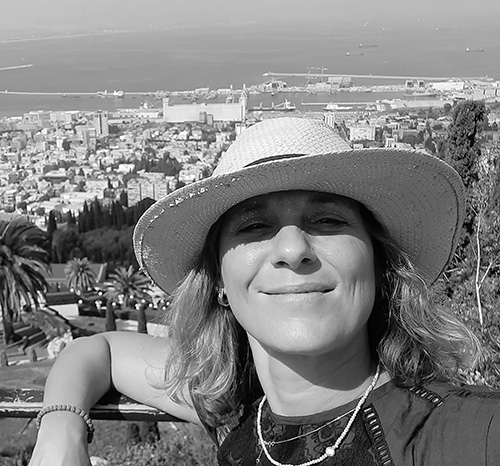
Soultana Saroglou
Postdoc in collaboration with the D.Dlab, Technion
Tanya Saroglou (Ph.D., M.Sc., Arch.) is a postdoctoral fellow at the Faculty of Architecture and Town Planning at the Technion. Throughout the years as a practicing architect, Tanya completed a number of innovative projects, collaborated with numerous professionals, took part in design workshops, attended a wide range of seminars and conferences related to Sustainable Development. Tanya also is an educator in a variety of topics relating to architecture, bioclimatic architecture, climatology, and building materials, while through her research work gained an expertise in the field of Building Physics. Building upon these experiences Tanya has developed a prolific and deep understanding of the built environment, as well as its human and natural perspective, with a focus on the urban situation, and more specifically the effects of urbanization, increasing world population, and the environmental, sociocultural, economic and phycological aspects inherent.'
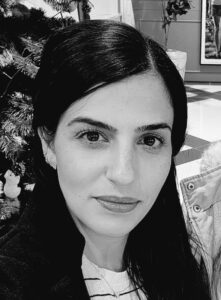
Coral Hamo
PhD Candidate in collaboration with Dr. Guy Austern, Technion
Coral Hamo Goren is an Architect and Urban Planner. Her Ph.D. focuses on developing urban analysis methods using Machine Learning models. These models will generate a multi-scale analysis of urban-architectural information based on accessible Earth Observation data. Coral aims to provide a thorough analysis suggesting trends, detecting reoccurring patterns, and new planning directions.
After completing her B.Arc studies, Coral was a researcher at LCUD (Laboratory of Contemporary Urban Design) - Tel Aviv University, during which she completed her master's studies with honors. She later worked as an architect and participated in large-scale urban renewal and planning projects. At the same time, she further enriched her knowledge in the field of data science with the understanding that part of the future of planning and architecture lies in the connection between the world of big data and computer science.
Alumni
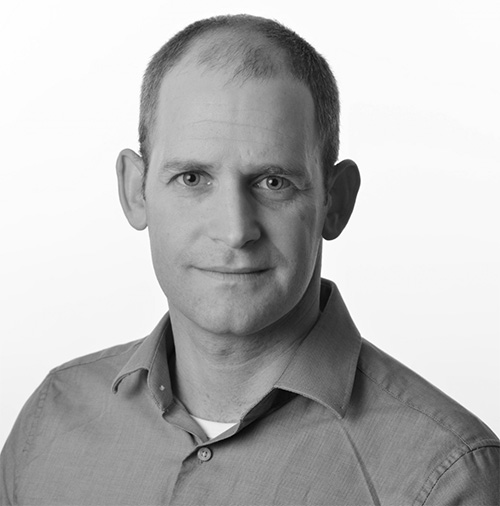
Hatzav Yoffe
Ph.D 2018-2022
Hatzav Yoffe is a Registered Landscape Architect and Sustainability Professional. He is a lecturer and researcher in the Landscape Architecture Department at the Technion - Israel Institute of Technology, and the Campus Landscape Architect at Kibbutz Ramat Yohanan.
With two professional degrees in landscape architecture: a B.L.A., Cum Laude, from Technion - Israel Institute of Technology (2009) and an M.L.A. from Harvard University Graduate School of Design (2013); Yoffe established a broad skillset that drives creativity and aesthetics into sustainable design. His experience as a landscape architect and as an applied researcher integrates advanced knowledge in urbanism, ecology and landscape architecture. Yoffe’s research Interests include the integration of sustainable design methodologies and technologies in civic infrastructure and urban design projects. His PhD study pursues performance evaluation of urban landscapes using big-data and machine learning technology.
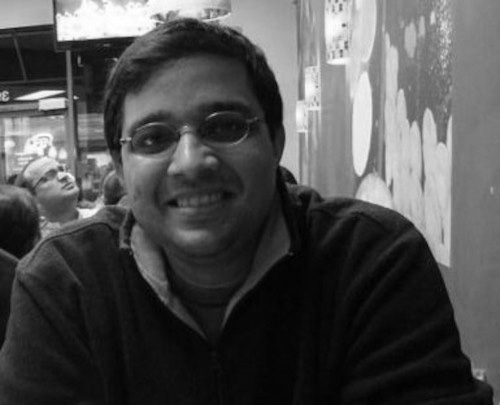
Kartikeya Date
Postdoc 2021-2022
Kartikeya Date is an architect from Mumbai, India. He received his Ph.D. in Architecture from UC Berkeley in 2018. He was a post-doctoral researcher at the Technion from 2019-2022. His research deals with how problems of architecture and the built environment can be described, framed and addressed using computer based architectural representations. He has recently worked on projects on modeling events in hospital wards and other comparable spaces using agent based modeling methods, and on developing a new type of archive for architectural and urban historians using large image corpuses such as Google Street View.
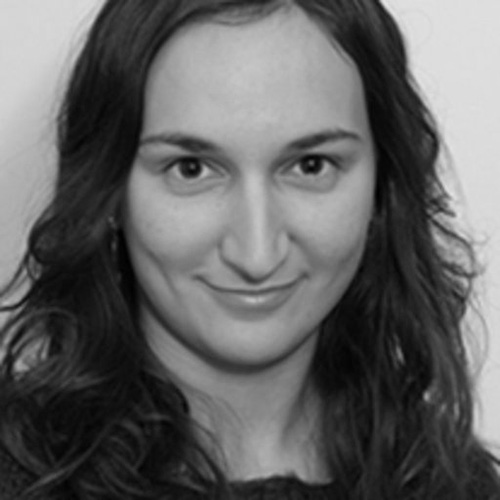
Avishag Shemesh
Ph.D. 2016-2020
When we experience different types of spaces we feel different emotions. No one, no matter his or her experience in the field of design, can stay indifferent to the surrounding. One might testify a feeling of vibrancy and excitement while entering a big hall; another will look for a corner to feel more secure. Looking in the field of environment behaviour we know that many different factors can explain these differences. Yet several fields are left relatively in the dark- what happens in our mind? What emotional impact our perception has over us? What is our primary instinct? Do we have one? This research aims to find whether there is a connection between different geometries of spaces and what we feel about them. It will try to provide better understanding of what happen to us when we encounter different types of spaces.
Architect Avishag Shemesh (Technion, 2010) gained her experience in designing public buildings, residential buildings and neighbourhoods, now a PhD candidate in Industrial Design. In her thesis she explores the connection between architecture and human perception.
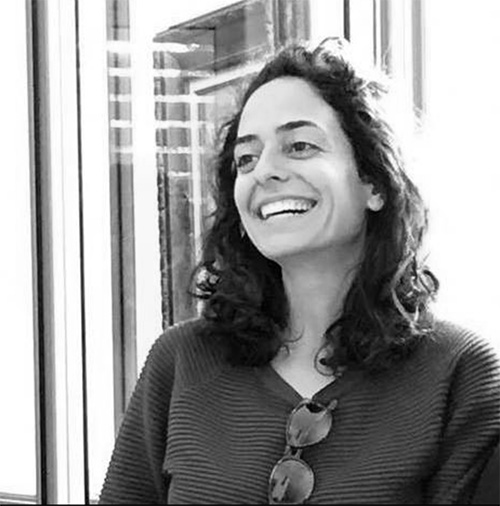
Cheli Hershkovich
MSc 2018-2020
Cheli Hershcovich was an MSc student with a strong interest in parametric architecture, biomimetics, natural and vernacular systems and their growth patterns.
Her master thesis focuses on complex geometry facades. Using CFD simulations she examines the potential of complex geometry to create a microclimate by changing the airflow on a building façade.

Michael Weizmann
Ph.D. 2017-2021
Michael Weizmann is an architect and Ph.D. candidate with a keen interest in computer-aided architectural design, focusing on digital manufacturing, performance-based development, and algorithmic-aided design.
Since his graduation from the Technion with a BArch degree, Michael has worked on various projects involving a computer-aided architectural design approach, both as an academic activity and in practice. His professional background includes working as an architect at Arch. Amit Nemlich’s office, and experience in digital fabrication via the position of Technion’s Computer Oriented Manufacturing lab’s manager.
In high.D.hD research Michael is studying the fascinating properties of geometry that can combine complexity and simplicity in a single object. The research deals with the h development of structural building elements made of simple blocs based on the Topological Interlocking principle.
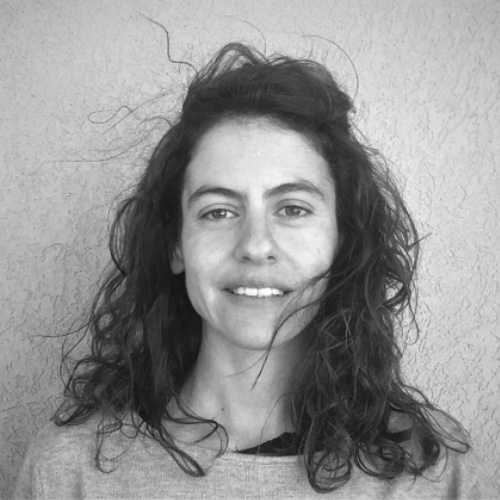
Noam Attias
Ph.D. 2018-2021
Noam fuses biotechnology and industrial design. She holds a B.Des in Inclusive Industrial design from the Hadassah Academic College, Jerusalem, graduated with honors. During her studies, Noam evolved a growing interest in the fabrication processes of biological materials and its utilization possibilities. After a short period at WCDIB design studio, she decided to take a deep tour into the world of biology. She graduated with honors an M.Sc in biotechnology at The Hebrew University of Jerusalem, Professor Oded Shoseyov’s lab, the Robert H. Smith Faculty of Agriculture, Food, and Environment, Rehovot, Israel.
In her PhD research, Noam aims to explore novel uses of fungal mycelium as a structural material in architecture and design, using advanced interdisciplinary materials and methods. The research is guided by Professor Yasha Grobman and Professor Ezri Tarazi from the Faculty of Architecture and town planning at the Thechnion and Professor Ofer Danai from Northern R&D, MIGAL, Israel; Composing a team with unique knowledge and experience in the varied fields of Architecture, Industrial Design and Applied Mycology. (personal webpage).
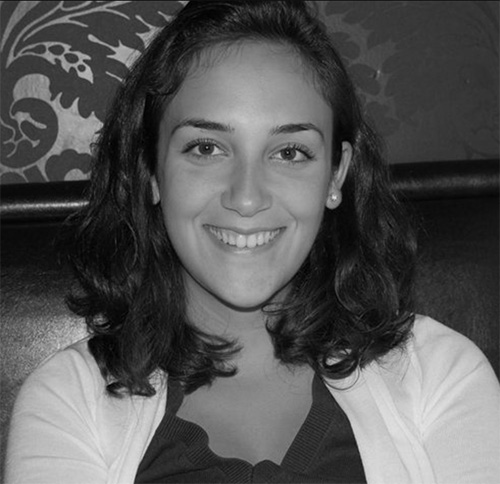
Hanna Levi
MSc 2016-2018
Hanna Levy was a MsC student at the Faculty of Architecture and Town Planning at the Technion.
Born and raised in Milan, she learned to appreciate and love art and architecture since childhood. Once she completed her first degree she felt the need to integrate a level of creativity to her mathematical background, by undertaking a M.Sc. in Architecture.
Her research is the right point of connection between the world of Water Engineering, more specifically Marine Engineering, and the one of Digital Architecture.
She will explore the implications of complex geometry enabled by computational technology to the design of urban waterfronts. Her work is aimed at developing computational design methods that will be able to predict and articulate the interaction of sea currents and waves with man-made infrastructure.
This project is being developed during a period of important advances in fluid dynamics simulations which are opening a totally new frontier in the conception and construction of architectural surfaces.
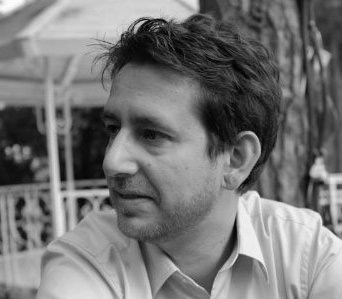
Guy Austern
Ph.D. 2017-2019
Guy Austern is an architect and a Ph.D. candidate. His Ph.D. focuses on the relations between architecture, fabrication, and computation. After graduating with his BSc. in Computer Science Guy Austern decided that the world is more beautiful than can be described in bits and bytes and went back to school, this time to study Architecture. During this period, he realized that the bytes might have had a point, and he has been exploring the boundary between computation and architecture ever since.
Guy has worked in Israel and the UK for various architecture offices, including SOM and NCArchitects, and startup companies in robotic fabrication, such as Robofold and Beyon3d. Between jobs, he has graduated with distinction from the Emergent Technologies and Design master program in the AA and taught workshops and courses about digital architecture in the AA, the Berlage Institute, IAAC, and the Technion IIT.
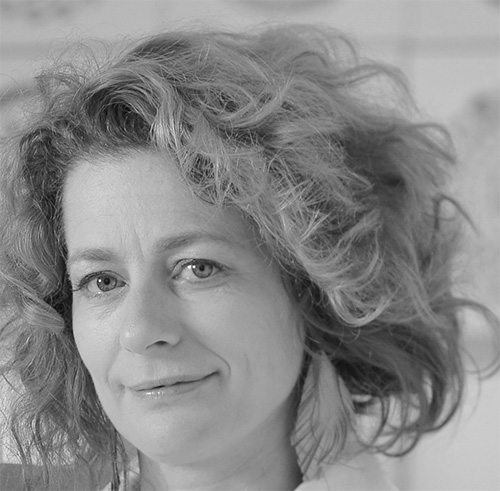
Arielle Blonder
Ph.D. 2016-2019
Arielle Blonder is an Architect with a strong interest in digital fabrication and materials, especially textiles. She holds her BArch . from the Technion and her MArch from the AA, where she graduated from the Emtech program (emergent Technologies and design). Her Ph.D. research focuses on using composite materials (FRP) in architecture and the potential of digital tools for design and manufacturing to enhance their architectural applications.
Looking at fiber composites as textiles that can be manipulated and formed freely as it is custom in fashion design while targeting architectural and structural applications, new fabrication and design processes can emerge (as outlined in Arielle's Master's thesis, Shell FABRICation).
Through academic activity and her practice, Amalgama, she explores various design fields and scales (architectural projects, exhibition design, outdoor sensory spaces, and textiles) with a focus on Digital fabrication, Materials, and Parametric design. She was a founding member and director of the first FabLab in Israel.
She has taught architecture and design in various institutions, including the Technion, Shenkar, COMAS, and Bezalel. She focuses on the connections between the digital and the material world in her teaching, self-fabrication and customization, parametric design, and fabrication.
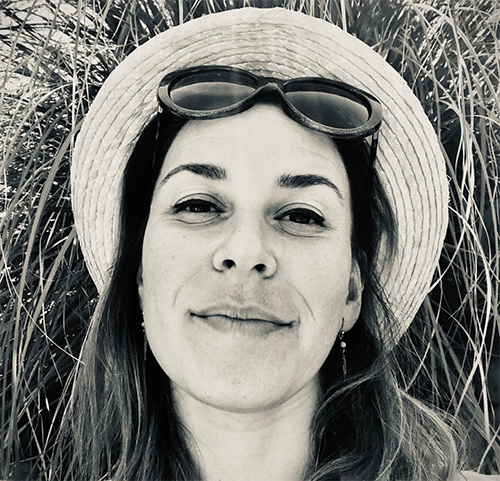
Polina Tener Karake
MSc 2012-2014
Polina Tener Karake - Originally trained as a landscape architect, she was always interested in combining engineering, design, and materials. She aims to connect those fields in her research toward her Master's in Industrial Design in the field of "Smart tiles systems", a field of self-standing structures without external joints. Polina's research examines the potential of parametric design and computer-aided manufacturing in developing tile systems based on 'joint units'. She aims to create a new prototype of a modular system with inherent self-construction based on topological interlocking principles.
After graduation from the Technion Institute of Technology (com Laude), she holds the position of a registered landscape architect and urban designer at Miller-Blum environmental planning. Earlier she participated in an IAESTE fellowship, working in the Roberto Candusso Architects office in Sao- Paulo, Brazil.

Tanya Pankratov Yekutiel
MSc 2014-2016
Tanya Pankratov Yekutiel - The movement of building façade cladding components is used mainly to control the buildings' exposure to the elements and to establish an optimal relation between the internal building environment and external conditions. Until recently, technology and cost restrictions allowed for limited application of adaptive kinetic components in building facades. The introduction of parametric design tools for architectural design combined with small-scale inexpensive sensor/actuator micro-controller made it possible to explore new ways for integrating kinetic and autonomously adaptive components in building facades.
This research examines the prospects of decentralizing the control over kinetic cladding components for building facades to make each piece an independent unit able to self-evaluation and individual adaptation as well as mutual influence on neighboring components. First, the research reviews the evolution and types of kinetic control mechanisms. It examines the possible advantages of decentralized control strategies over the traditional method of centralized control in the operation of adaptable cladding systems for building facades. Finally, the research analyses several types of physical case-study experiments that use Arduino, an open-source single-board micro-controller for autonomous and decentralized control over the cladding components, and compares their efficiency to that of the traditional method of centralized control.



